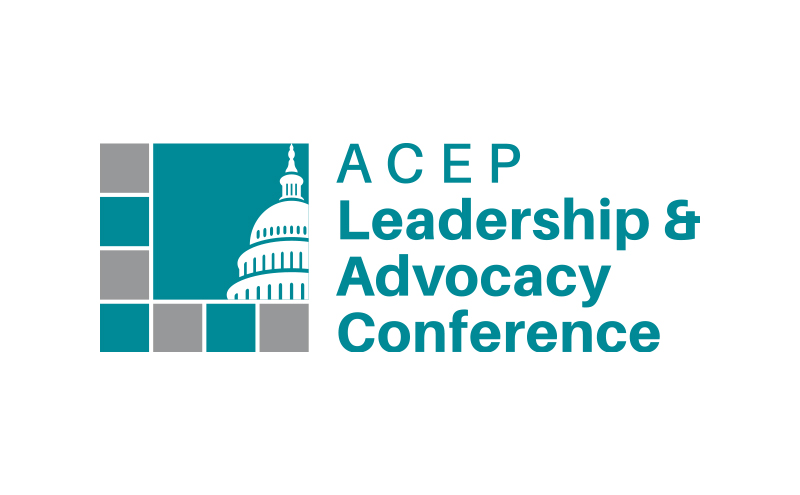
Leadership and Advocacy Conference 2018
One of my favorite meetings each year is the ACEP Leadership and Advocacy Conference (LAC). This year it was held at the Grand Hyatt in Washington, DC, May 20-23, 2018. This is a recently renovated facility in downtown DC just blocks from the National Mall.
State chapter leadership sessions were added this year to the meeting on Sunday afternoon. Initial LAC sessions included a discussion regarding the effective use of administrative power, choosing influence over dominance, and how to reward department champions and move the performance curve for the group as a whole.
Three highly successful women leaders held a discussion regarding workplace disparities and methods to ensure that moving forward there are fair and equitable opportunities for women and women of color. This included a discussion regarding inherent bias.
The national editor of the Cook Political Report an American political analyst discussed the political environment in Washington and her thoughts about the upcoming midterm elections. There were break-out sessions on the emergency merit-based incentive payment system (MIPS) and a panel discussion regarding entitlement reform.
Robert Kadlec, MD, the Health and Human Services Assistant Secretary for Preparedness and Response (ASPR) provided a talk about national efforts to prepare for regional and larger scale disasters. This includes support of state and local resources. There were more breakout sessions on how to change the perceptions of emergency care, how to respond to state and national insurers attacks on prudent layperson legislation and using social media and storytelling for advocacy.
On Tuesday we were prepped on the three issues we were to discuss with our elected officials. We each had a number of appointments scheduled with our elected officials and/or their health policy aids. As I have articulated previously, the aids are remarkably bright young individuals that digest and formulate national policy and to a large point develop the legislative content and guide the votes of our elected officials. The three issues we discussed were:
- Reauthorization of the “Preparedness and All-Hazards Preparedness Act” (PAHPA). This originated in 2006 and was reauthorized in 2013. We requested it be strengthened bya. Including the full utilization of ASPR’s Emergency Care Coordination Center (ECCC).
- Including the full utilization of ASPR’s Emergency Care Coordination Center (ECCC).
- There be the establishment/enhancement of fully operational, integrated regionalized systems for emergency care.
- The Mission Zero Act (H.R.880/S. 1022) be approved. This allows for military trauma teams to be available at civilian trauma centers during disasters.
- There be a response to essential medication shortages (especially as they impact the response to large scale disasters).
- That the legislators support and sign onto a letter to FDA Commissioner Scott Gottlieb, MD, asking that he convene an existing US Food and Drug Administration (FDA) subcommittee to study the etiology of low cost medication shortages (and normal saline), and that they report these findings and recommended solutions to congress. See the Breaking News article for an update.
- That the legislators support two bills which address the opioid crisis:
- The Alternatives to Opioids (ALTO) in the Emergency Department Act (H.R.5197/S. 2516). This provides grants to help EDs and hospitals implement non-opioid evidence-based pain management protocols.
- The Preventing Overdoses While in Emergency Rooms (POWER) Act (H.R.5176/S. 2610). This bill provides grants to establish policies and procedures for initiating Medication-Assisted Treatment (MAT) in the emergency department, and to develop best practices to provide a handoff to appropriate community resources.
The third day of the conference was a new event titled “Solutions Forum”. This included a Keynote Address by United States Surgeon Vice Admiral Jerome M. Adams, where he discussed federal efforts to address the opioid epidemic and emergency medicine’s role in this problem. As well he discussed the syringe and needle exchange program he developed in Indiana in response to a dramatic increase in new HIV cases in rural Scott County, Indiana.
There were forums on putting opioid prevention and opioid treatment into practice, as well as federal efforts to address and stem the opioid crisis. The final forums were regarding end-of-life issues, recognizing the value and advanced care planning and ethical considerations.
As you can see there was something for everyone and topics were applicable to issues we are faced with every shift. I encourage you to consider attending ACEP’s 2019 LAC, May 5-8, 2019, at the Grand Hilton in Washington DC.
Please contact me if you have any questions.
Thom R. Mitchell, MD, FACEP

